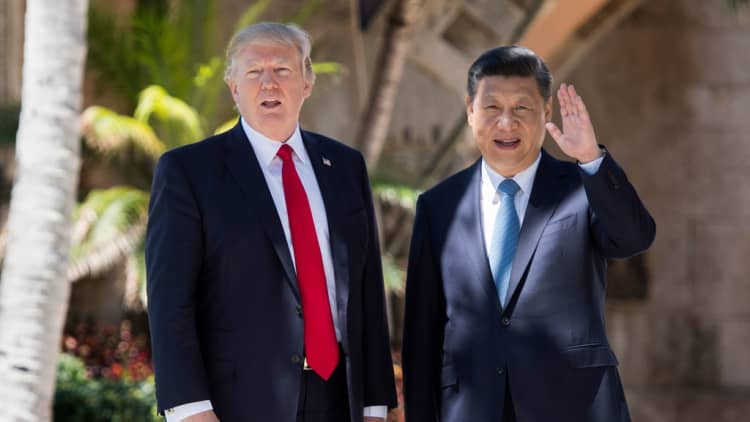
Stocks sold off Monday despite reports that U.S.-China trade talks were in their "final stages," with the Dow Jones Industrial Average ending the day down 200 points after falling more than 400 points at the lows of the session. The also slipped, closing below its key 2,800 threshold.
Some experts say it's because investors have grown tired of incremental developments in the negotiations. Here are three market watchers' reactions to Monday's drop:
- Josh Brown, CEO of Ritholtz Wealth Management and a CNBC contributor, told CNBC's "Halftime Report" that "We finally have deal headline fatigue. We have rallied 80 days, each day, on renewed optimism over China talks, and 50 different derivations of that. But it's the same story every day. Sometimes it happens in the middle of the day, so we open red and then we close green. So, how many days in a row can you rally on the same premise? So I think the market now understands something will happen. I don't think the market actually cares about the details. I think we want some sort of resolution, and then some people will say it's good, some will say it's bad, and we'll be back to politics as normal."
- Safanad's chief investment officer, John Rutledge, who advised former Presidents Ronald Reagan and George H. W. Bush, contended on CNBC's "Squawk on the Street" that a finalized deal could actually boost stocks: "There are some people inside our government that think that China's been pushing their currency down. It has fallen, but they've actually been trying to prop it up. It's fallen because foreign investors have pulled their money out of China, making it difficult to maintain the currency at its current level. And so announcing a stable currency is going to discourage those people from pulling capital out. It'll actually make the People's Bank of China's job a lot easier. The economy is very weak, they've done all they can do to stimulate it, and it'll take some time before that takes effect. But I think the markets themselves are going to really like the deal."
- Sarat Sethi, managing partner and portfolio manager at Douglas C. Lane & Associates, shared a few ways to play the market's reversal on "Squawk Box": "Yes, a lot of this 'stimulus' is baked in, but if you look at the overall market, I still think the areas that we can still go forward if this deal is done properly and there are specifics that can help, especially in the industrials, the cyclicals, the financials. They've come back, but not as much as the rest of the market. And I think, on a valuation basis, that's where the opportunity's going to be because, really, if you look at it: what are the parts of the economy that haven't really come ahead? FANGs, tech, they've all kind of rallied, but let's look at specifics."






